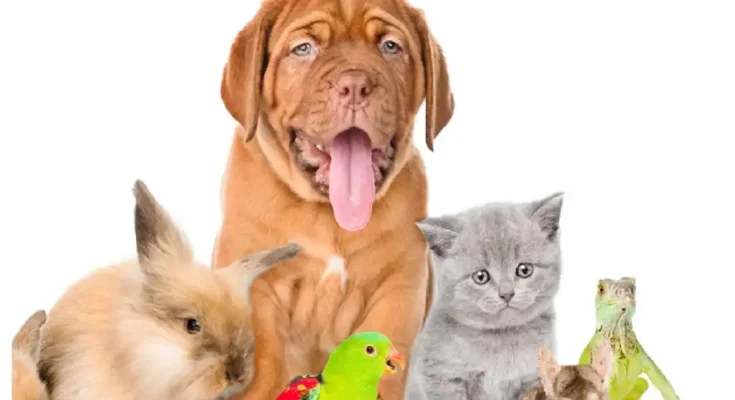There’s something profoundly heartwarming about being greeted by a wagging tail or the soft purr of a cat after a long day. That connection between humans and animals is ancient and meaningful. Having a pet isn’t just about having a cute companion—it’s about creating a deep, unspoken bond that nourishes your soul and brings joy to your everyday life.
Pets have been a part of human existence for thousands of years, not just as working animals but as treasured members of the family. Today, in a world that often feels fast-paced, lonely, or stressful, the companionship of a pet offers a grounding, comforting presence.
Why Pets Matter in Human Life?
-
Emotional Connection and Unconditional Love
At the heart of every pet-owner relationship lies unconditional love. A dog doesn’t care what kind of day you had. A cat doesn’t judge your appearance or mistakes. Pets offer affection without demands, understanding without words. That’s what makes their love so pure—it’s consistent and heartfelt.
This kind of emotional connection is especially important in times of personal stress or crisis. Just having a pet nearby can ease feelings of loneliness, depression, and anxiety. They don’t need to talk back; they just need to be there, with their calming presence and loving eyes.
-
Mental Health and Emotional Balance
Numerous scientific studies have proven the benefits of pet ownership on mental health. Spending time with pets increases oxytocin, the hormone responsible for bonding and trust, while decreasing cortisol, the body’s main stress hormone. Whether you’re cuddling your bunny, watching your fish swim gracefully, or playing fetch with your dog, you’re actively nurturing your emotional health.
Pets also help people establish routines and responsibilities, which can be especially valuable for those struggling with mental health challenges. Caring for another living being gives purpose and structure to the day.
Pets and Their Impact on Physical Health:
-
Encouraging an Active Lifestyle
If you’ve ever owned a dog, you know they don’t let you slack off. Daily walks, trips to the park, and playtime in the yard aren’t just for them—they’re for you too. Pet owners, particularly dog owners, are shown to be more physically active than those without pets.
Even smaller, less active pets like cats or birds contribute to physical well-being. The act of feeding, cleaning, grooming, or playing may not be a gym workout, but it encourages movement and attentiveness.
-
Strengthening the Immune System
Contrary to popular belief, exposure to pets can actually strengthen the immune system, especially in children. Research shows that kids raised around pets are less likely to develop allergies and asthma. The moderate exposure to germs and pet dander helps build a more resilient immune response.
Additionally, interacting with pets has been shown to lower blood pressure, reduce cholesterol levels, and improve heart health. It’s as if every tail wag or happy chirp contributes a little boost to your well-being.
Pets Teach Us Life’s Greatest Lessons:
-
Responsibility and Routine
When you have a pet, especially one that depends on you entirely, you learn what responsibility truly means. You can’t skip feeding time because you’re tired. You can’t ignore a vet appointment because you’re busy. A pet teaches consistency and accountability, qualities that can extend into all areas of life.
Children who grow up with pets often develop empathy, patience, and compassion at an earlier age. They learn that their actions have consequences, and that nurturing something requires effort, attention, and love.
-
Living in the Present
Pets don’t dwell on the past or worry about the future. They live completely in the now—and in doing so, they teach us to do the same. A dog doesn’t care that yesterday was bad. A cat won’t stress about tomorrow. They find joy in small things: a sunbeam, a belly rub, a new toy.
In their own gentle way, pets remind us that happiness isn’t always in big moments or future goals—it’s often in simple, shared moments of joy.
Choosing the Right Pet for Your Life:
-
Not All Pets Are the Same
When it comes to choosing a pet, lifestyle matters. Dogs require time, space, and daily exercise. Cats are more independent but still need affection and care. Birds, reptiles, rabbits, and fish each have unique needs in terms of habitat, attention, and interaction.
The key is choosing a pet that suits your energy level, daily routine, and environment. Do your research, ask questions, and don’t rush the decision. A pet is not a temporary commitment—they’re a life companion.
-
Adoption Over Purchase
There are millions of pets in shelters waiting for homes. By choosing to adopt, you’re not only gaining a new friend—you’re saving a life. Shelters often have animals of all types, ages, and temperaments. Whether you want a playful puppy, a calm senior cat, or even a pair of bonded guinea pigs, there’s a shelter pet out there for you.
Adoption also helps combat unethical breeding practices and reduces the number of homeless animals in your community.
Making Time for Pets in a Busy World:
-
Quality Over Quantity
You don’t need endless hours to make a pet feel loved—you just need to be present. A solid 30 minutes of play, cuddle, or grooming time can mean the world to your pet. Even simple habits, like talking to your cat while you cook or tossing a toy to your dog while on a call, reinforce that connection.
Pets thrive on consistency and affection more than constant attention. It’s not about how much time you have—it’s about how you use it.
-
Integrating Pets Into Your Routine
Instead of seeing your pet as separate from your daily life, make them part of it. Take your dog on your morning jog. Let your cat sit on your desk while you work. Watch a movie with your rabbit snuggled beside you. Pets don’t just fill our free time—they enrich our daily lives with companionship and joy.
The Lasting Impact of Pet Companionship:
One of the hardest parts of having a pet is knowing their life is shorter than ours. Saying goodbye is never easy. The grief of losing a pet is real, deep, and valid. But even in their absence, pets leave behind something beautiful: the memory of love, the imprint of joy, and the quiet echo of pawprints in your heart.
Their impact doesn’t end when their life does. It carries on in the way you love, care, and live after them.
Conclusion:
In the gentle gaze of a pet, we see the kind of love we all wish for—pure, constant, and healing. So, if life ever feels too heavy, consider the magic of a paw, a purr, or a chirp. It might just change everything.
In a world full of uncertainty, pets offer something rare: loyalty that doesn’t waver, love that doesn’t judge, and companionship that never feels forced. They are, in many ways, our better halves—instinctive, forgiving, and endlessly loving.
When you share your life with a pet, you’re not just gaining a companion—you’re gaining a teacher, a confidant, a reason to smile on your worst days.




